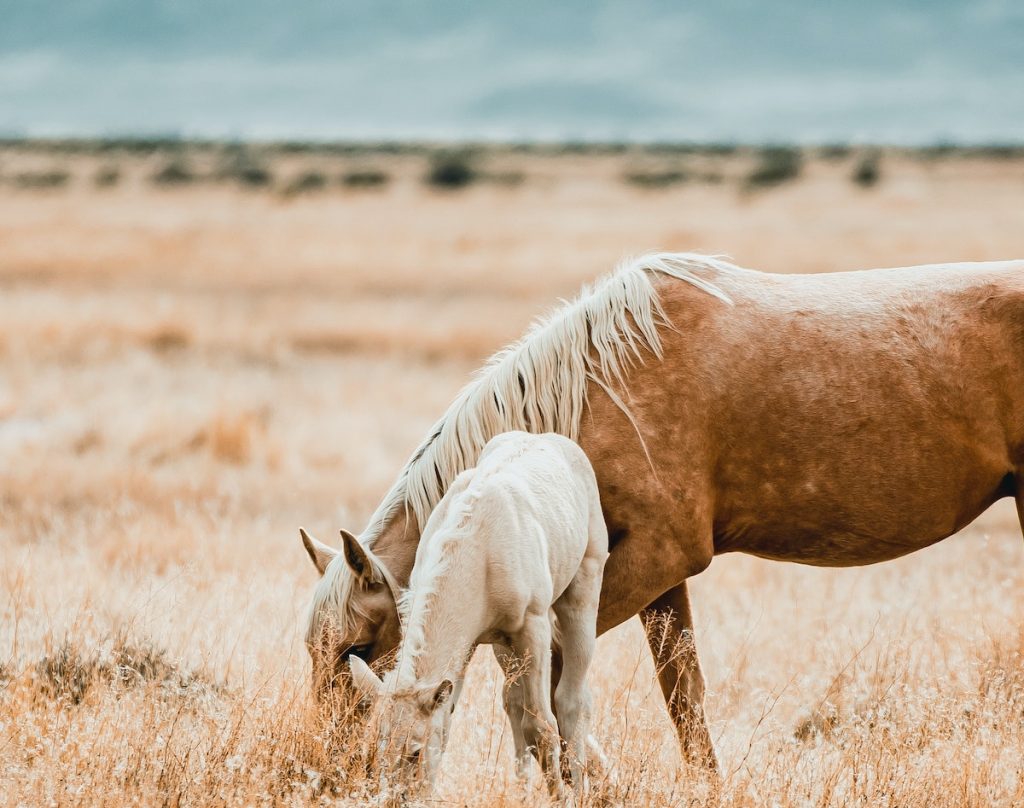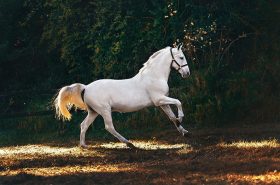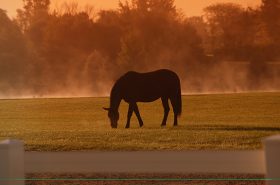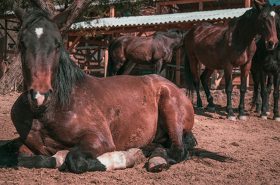Gear up for the new season with these helpful tips.
You may have started to notice warmer weather and longer days. Spring is making its arrival known! Most riders are anxious and excited for this beautiful season to come. It usually means more riding time, lush green pastures, and no blankets for the horses. It does come with some added responsibility though. You need to ensure your horse is ready for this new season.
Get you and your horse ready for spring by checking off some of these boxes!
Lush Pasture
Your horse is more than ready to inhale that lush green grass, but you better monitor them carefully if you want to avoid laminitis. Any sudden changes to your horse’s diet can cause trouble. If they have been on a dry lot all winter, then introduce lush pasture slowly. This will allow the microbes in your horse’s digestive system time to adjust.
Spring grass is also high in non-structural carbohydrates, such as sugars and starch. Large qualities of them can cause laminitis and founder in horses with metabolic disorders. Certain horses may need a grazing muzzle or to remain on a dry lot.
Annual Vet Examination
Spring is the perfect season to call the vet out for a routine exam. They can look at your horse’s condition and overall health. Sometimes, a shaggy winter coat can hide ribs and bumps. While your vet is out, you should get your horse’s Coggins and vaccines done.
A Coggin’s test takes a sample of your horse’s blood and checks it for Equine Infectious Anemia. It’s especially helpful if you plan to cross state lines for a show or trail ride. You should also consider getting some core vaccines for your horse this spring. Check with your vet for the ones they recommend. Most suggest rabies, tetanus, and EEE/WEE.
It can be a good idea to ask your vet to do a fecal exam for parasites, as well. When you get the results back, you can target the specific parasites that are overloading your horse. This has proven more effective than deworming them at random.

Nutrition
A number of factors should be considered when planning what and how much your horse eats. You should consider your horse’s workout schedule, how much grass they’re getting, and the changing temperatures. You may need to cut back or add more, depending on your horse’s unique needs.
Dental Floating
Before you start riding on a regular basis, you should schedule the dentist to come out and check your horse’s mouth. Some need annual exams to rasp off sharp edges and points on their teeth. Many horses will toss their head and stop eating as much when they’re dealing with dental pain. Those sharp points are very uncomfortable!
A Hoof Trim
Your farrier should tidy up your horse’s hooves. A good trim will balance them out! For some, they may need to put their shoes back on now that winter is over. You’ll want to give your horse a chance to get accustomed to them again.
Body Care
Unfortunately, spring also brings mud with it. You should check over your horse’s body, legs, and hooves on a daily basis. Look for unusual scabs and smells. It can be helpful to have an antifungal and antibacterial shampoo on hand. You’ll want to treat your horse at the first sign of a problem.
You should also purchase a shedding blade or curry. Your horse will begin losing their winter coat in the spring. You can quicken the process by grooming them on a regular basis. This will also help with their itchiness!
Now that you’re ready for spring, let the fun begin!

Love this blog post? We think you will like Spring Horse Management Checklist by Emily Griffin.



